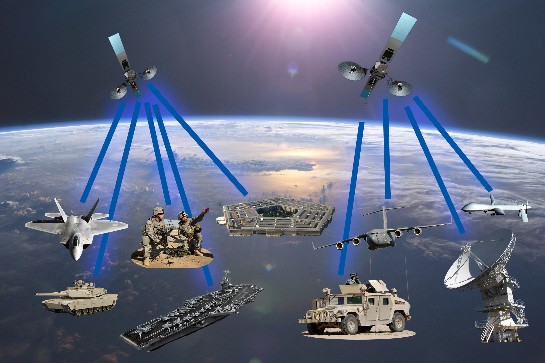
Gen Shelton “There’s no substitute to global-ready space capabilities”
Today, the Atlantic Council hosted Gen William Shelton, Commander of Air Force Space Command, to discuss the future of the U.S. space program in light of recent developments both domestically and abroad. Gen Shelton spoke of the very real threats that U.S. space infrastructure faces with “no plan B for battle,” in addition to the potential for public-private partnerships to improve the nexus of space infrastructure: capabilities, resiliency, and affordability.
Gen Shelton began by giving an overview of the state of U.S. space infrastructure. In addition to current sequestration which has been largely manageable, there is the very real possibility that future budgets will continue to call for across-the-board cuts. These cuts only enhance the necessity for the disaggregation of the U.S. satellite constellation. This fact is especially critical when considering the point that current infrastructure was built with the assumption of space being a “peaceful sanctuary,” a notion that the U.S. Air Force no longer deems realistic.
The commander then went on to discuss the shortcomings of both payloads and launch systems of the U.S. space program. Programs such as the Advanced Extremely High Frequency Constellation will only include a total of six satellites upon completion. This critical system connects warfighters around the world to decision-makers like the President of the United States. If a single satellite was rendered unusable by a previously proven attack, broad swaths of personnel could have communications with command and control hampered, if not rendered entirely unusable. The general spoke of the necessity for disaggregation of satellite constellations, as well as the leveraging of commercial services and international partnerships to ensure that this situation would not be realized.
Although programs such as the Geosynchronous Space Situational Awareness Program (GSSAP) will hopefully improve the U.S.’s ability to counteract potential threats above our atmosphere, some forms of attack, including the unlikely event of an above atmosphere nuclear strike, would be nearly impossible to avoid. It is these sorts of attack that would be most damaging and could render warfighting capabilities useless. It is for reasons such as these that assured access to space should be prioritized just as much as the disaggregation of space infrastructure. The Air Force has been stimulating developments under this notion through the certification of Space Exploration Technologies (SpaceX) – a task which the general hopes to complete by December of 2014.
Ultimately, space infrastructure and its role in the United States is underappreciated. It has paved the way for a number of key technologies in both the public and private sectors. The general was correct in stating that space “is no longer a peaceful sanctuary.” Although we must eventually take measures that are proactive in ensuring the viability of our infrastructure, the first step to this goal is guaranteeing access to space, as well as motivating the private sector through fair competition and incentivization.
To learn more about ASP’s work with space, please visit www.nationalsecurityandspace.org





